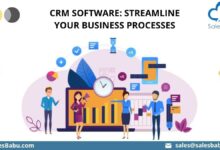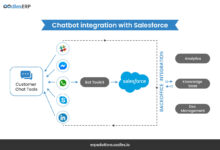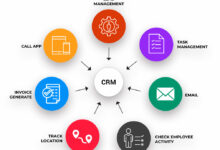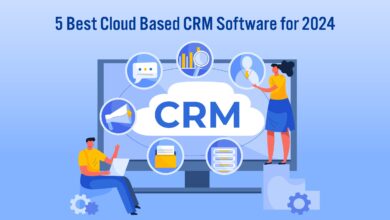Affordable CRM Software For Startups: Streamlining Customer Relationships
Affordable CRM Software for Startups sets the stage for this enthralling narrative, offering readers a glimpse into a story that is rich in detail and brimming with originality from the outset. In today’s competitive business landscape, managing customer relationships effectively is vital for startup success. Implementing a cost-effective CRM solution tailored to startup needs can make a significant impact on sales, marketing, and overall customer satisfaction.
Importance of CRM for startups
CRM (Customer Relationship Management) software plays a crucial role in the success of startups by helping them manage customer relationships effectively. It provides a centralized platform for storing customer information, interactions, and preferences, allowing startups to personalize their communication and tailor their products/services to meet customer needs.
Streamlining Sales and Marketing Processes
CRM software can streamline sales and marketing processes for startups by automating tasks such as lead generation, email marketing, and sales tracking. By providing insights into customer behavior and preferences, startups can target the right audience with personalized messages, resulting in higher conversion rates and increased revenue.
Enhancing Customer Satisfaction and Retention
CRM software enables startups to provide better customer service by tracking customer interactions, resolving issues promptly, and anticipating customer needs. By building strong relationships with customers through personalized communication and timely support, startups can increase customer satisfaction and loyalty, leading to repeat business and positive word-of-mouth referrals.
Key features to look for in affordable CRM software
When selecting an affordable CRM software for your startup, it is crucial to consider key features that can help streamline your customer management processes and drive business growth. These features can vary depending on the specific needs of your startup, but there are some essential aspects to look out for.
Customization Options
Customization options in CRM software allow startups to tailor the system to their unique business requirements. This feature enables you to customize fields, workflows, and reports according to your specific needs, ensuring that the CRM software aligns perfectly with your business processes.
Scalability and Integration Capabilities
Scalability is vital for startups as they grow and expand their customer base. Look for CRM software that can easily scale along with your business, accommodating an increasing number of users and customers without compromising performance. Integration capabilities are also crucial, as they allow you to connect your CRM system with other essential tools and applications, such as email marketing platforms, accounting software, or e-commerce platforms. Seamless integration ensures a smooth flow of data across different systems, enhancing overall efficiency and productivity.
Cost-effective CRM solutions for startups
Implementing a cost-effective CRM solution is crucial for startups looking to manage customer relationships efficiently without breaking the bank. Let’s explore the different affordable CRM software options available for startups.
Comparison of affordable CRM software options
- Pricing Plans: When comparing CRM software options, startups should consider not only the initial cost but also any hidden fees or additional charges for extra features or users. Some software may offer flexible pricing plans based on the size of your team or the number of customers you need to manage.
- Cloud-based vs. On-premise: Cloud-based CRM solutions typically have lower upfront costs and are easier to scale as your startup grows. On the other hand, on-premise solutions may require a larger initial investment but offer more control over data security and customization.
- Pros and Cons: Cloud-based CRM solutions are often more cost-effective for startups due to lower maintenance and infrastructure costs. However, on-premise solutions can provide greater customization options and better data control. Startups need to weigh the benefits of each option based on their specific needs and budget constraints.
Implementation and onboarding process
Implementing CRM software for startups involves several key steps to ensure a smooth transition and effective utilization of the system. Onboarding team members and providing proper training are essential for maximizing the benefits of the CRM solution. However, startups may encounter challenges during the implementation phase that need to be addressed to achieve successful adoption.
Steps involved in implementing CRM software for startups
- Conduct a thorough assessment of your business needs and objectives to determine the right CRM solution.
- Select a suitable CRM software that aligns with your requirements and budget constraints.
- Customize the CRM system to match your business processes and workflows for seamless integration.
- Migrate existing data from legacy systems or spreadsheets to the new CRM platform without data loss or errors.
- Train your team members on how to use the CRM software effectively and efficiently.
- Monitor the implementation progress and address any issues or challenges that may arise during the transition phase.
Best practices for onboarding team members and training on CRM system
- Provide comprehensive training sessions for all team members to ensure they understand the features and functionalities of the CRM software.
- Assign a dedicated CRM administrator to oversee the onboarding process and provide ongoing support to users.
- Create user guides, tutorials, and resources to help team members navigate the CRM system and troubleshoot common issues.
- Encourage feedback from users to identify areas for improvement and refine the training process accordingly.
- Establish clear goals and metrics to measure the effectiveness of the CRM system and the proficiency of users.
Common challenges faced during implementation phase
- Resistance to change from team members accustomed to manual processes or other tools.
- Data quality issues due to inconsistencies, duplicates, or missing information during data migration.
- Lack of adequate training and support for users to leverage the full potential of the CRM software.
- Integration problems with other business systems or applications, leading to data silos and inefficiencies.
- Overlooking the importance of regular system maintenance, updates, and user feedback for continuous improvement.
Data management and security in CRM software
Data management and security are crucial aspects of CRM software for startups, ensuring the protection and accuracy of valuable customer information.
Importance of data management and security
- Effective data management in CRM software helps startups maintain organized and updated customer records, enabling personalized communication and targeted marketing strategies.
- Security features such as encryption, access controls, and regular audits are essential for safeguarding sensitive customer data from cyber threats and unauthorized access.
- Compliance with data protection regulations like GDPR is a key consideration for startups to build trust with customers and avoid legal repercussions.
Ensuring data accuracy and integrity
- Startups can ensure data accuracy by implementing data validation processes, regular data cleansing, and staff training on data entry best practices.
- Integration with other business systems and automation of data entry can minimize human errors and ensure consistency across the CRM system.
- Utilizing data deduplication tools and setting up data quality rules can help startups maintain clean and reliable customer data for effective decision-making.
Data backup and disaster recovery options
- CRM software providers offer automated data backup solutions to prevent data loss due to system failures, human errors, or cyber attacks.
- Cloud-based CRM systems provide scalable storage options and built-in redundancy for secure data backup and quick recovery in case of emergencies.
- Startups should regularly test their disaster recovery plans, including data restoration procedures, to ensure business continuity and minimize downtime in critical situations.
Integrating CRM with other business tools
Integrating CRM software with other essential tools used by startups can greatly enhance efficiency and productivity by streamlining processes and centralizing data. This integration allows for seamless communication between different systems, leading to a more cohesive workflow and improved customer experience.
Benefits of CRM integration
- Improved data accuracy: Integrating CRM with other tools ensures that data is consistent across platforms, reducing errors and duplication.
- Enhanced customer insights: By combining CRM data with marketing or help desk tools, startups can gain a deeper understanding of customer behavior and preferences.
- Automation of tasks: Integration enables automation of repetitive tasks, saving time and resources for startups.
- Personalized customer interactions: Access to integrated data allows startups to tailor their interactions with customers based on their preferences and history.
Tips for seamless integration
- Choose compatible tools: Select tools that offer easy integration with your CRM software to ensure a smooth process.
- Train your team: Provide training to your team on how to use the integrated systems effectively to maximize the benefits.
- Utilize APIs: Take advantage of APIs provided by CRM and other tools to facilitate integration and data sharing.
- Regularly monitor and update: Regularly monitor the integration process and update systems as needed to ensure optimal performance.
Impact on business efficiency
- Streamlined processes: Integration eliminates the need for manual data entry and transfers, streamlining processes and reducing errors.
- Centralized data management: By integrating CRM with other tools, startups can centralize data management, making it easier to access and analyze information.
- Improved collaboration: Integration fosters better collaboration between teams by providing a unified view of customer data and interactions.
User experience and interface design
User experience (UX) and interface design play a crucial role in the success of CRM software for startups. A user-friendly interface design can greatly enhance user productivity, increase user adoption rates, and ultimately lead to better customer relationship management.
Importance of User-Friendly Interface Design
Startups often have limited resources and time, making it essential to have a CRM system that is easy to use and intuitive. A user-friendly interface design can help streamline workflows, reduce training time for employees, and improve overall efficiency.
- Clear navigation: Intuitive navigation menus and organized layout can help users quickly find the information they need.
- Customizable dashboards: Tailored dashboards with relevant data and metrics can provide a personalized user experience.
- Responsive design: Ensuring that the CRM software is accessible on various devices can improve user experience for remote or on-the-go employees.
Examples of Intuitive CRM Interfaces
Some CRM software solutions that are known for their user-friendly interface design include:
Salesforce: Known for its clean and customizable interface, Salesforce offers a user-friendly experience with drag-and-drop features and easy-to-use tools.
HubSpot CRM: HubSpot’s CRM system is praised for its simplicity and user-friendly interface, making it easy for startups to manage customer relationships effectively.
Optimizing CRM System for Ease of Use
Startups can optimize their CRM system for ease of use and accessibility by:
- Providing adequate training and support for employees to familiarize themselves with the CRM software.
- Capturing and utilizing user feedback to continuously improve the interface design and user experience.
- Regularly updating and maintaining the CRM system to ensure optimal performance and usability.
Customer support and training options
Customer support and training options are crucial aspects to consider when selecting a CRM software provider for startups. Responsive customer support and comprehensive training resources can significantly impact the efficiency and effectiveness of your startup team’s CRM usage.
Comparing Customer Support and Training Options
When comparing CRM software vendors, look for providers that offer various customer support channels such as live chat, email, phone support, and online knowledge bases. Additionally, consider the availability of training resources like video tutorials, webinars, and documentation to help your team get up to speed quickly.
Significance of Responsive Support and Training
Responsive customer support ensures that your team can quickly address any issues or questions that may arise during CRM implementation and usage. Comprehensive training resources help onboard new team members efficiently and optimize your CRM system’s capabilities.
Choosing a Reliable CRM Provider
To ensure a smooth CRM experience for your startup, prioritize selecting a CRM software provider that offers reliable customer support and training services. Look for vendors with a reputation for excellent customer service and a commitment to assisting customers throughout their CRM journey.
Measuring ROI and success metrics
In order to determine the return on investment (ROI) of their CRM software, startups need to track key performance indicators (KPIs) and success metrics that directly impact their business growth and profitability. By analyzing these metrics, startups can evaluate the effectiveness of their CRM software and make data-driven decisions to optimize their strategies.
Key Performance Indicators for Startups
- Customer Acquisition Cost (CAC): Measure the cost of acquiring a new customer through marketing and sales efforts. A lower CAC indicates a more efficient customer acquisition process.
- Customer Lifetime Value (CLV): Calculate the total revenue a customer is expected to generate over their entire relationship with the company. Increasing CLV indicates higher customer retention and value.
- Sales Conversion Rates: Track the percentage of leads or prospects that convert into paying customers. Improving conversion rates directly impacts sales revenue and overall business performance.
Analyzing Success Metrics
- Customer Acquisition Cost (CAC): By comparing CAC with the revenue generated from acquired customers, startups can assess the profitability of their marketing and sales efforts.
- Customer Lifetime Value (CLV): Analyzing CLV helps startups understand the long-term value of their customers and identify opportunities for increasing customer loyalty and retention.
- Sales Conversion Rates: Monitoring conversion rates allows startups to identify strengths and weaknesses in their sales process and implement strategies to improve conversion efficiency.
Setting Realistic Goals and Benchmarks
- Define clear objectives: Establish specific, measurable goals for CRM software implementation, such as increasing sales revenue, improving customer retention, or streamlining lead management.
- Track progress: Regularly monitor KPIs and success metrics to evaluate the impact of CRM software on business performance and adjust strategies accordingly.
- Compare results: Benchmarking performance against industry standards or competitors can provide valuable insights into the effectiveness of CRM software and areas for improvement.
Final Conclusion
In conclusion, Affordable CRM Software for Startups is a game-changer for emerging businesses looking to establish strong customer relationships and drive growth. By investing in the right CRM tools and strategies, startups can pave the way for long-term success in a dynamic market environment.









